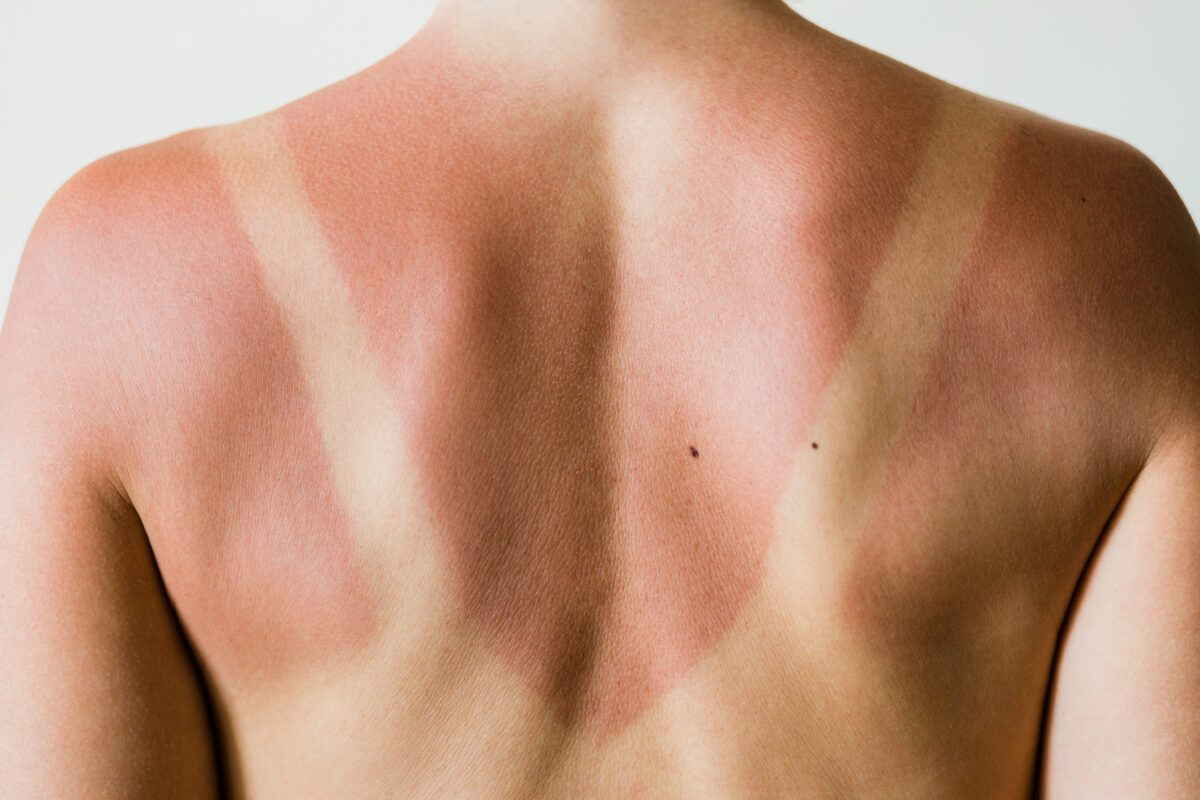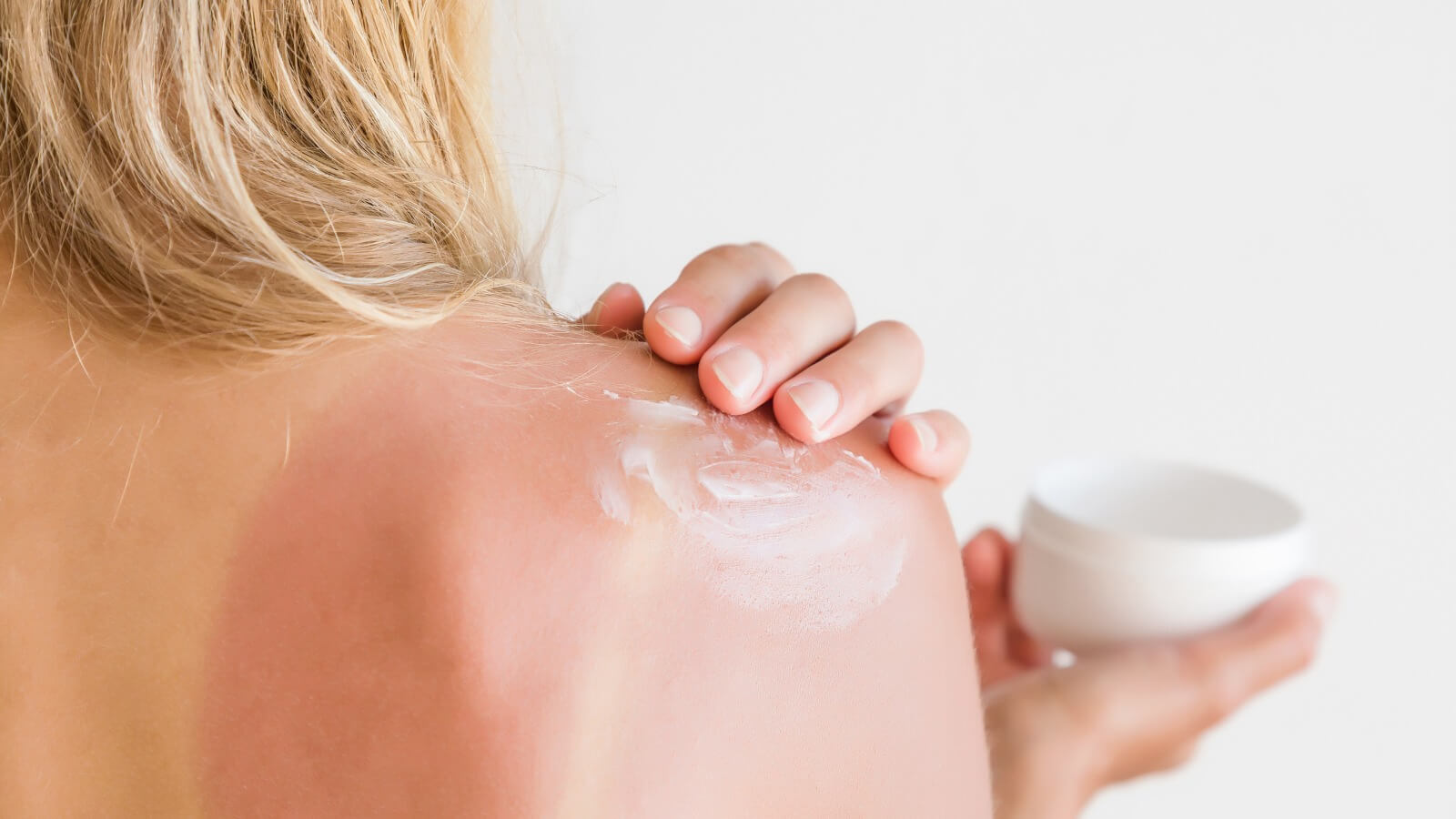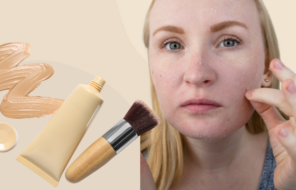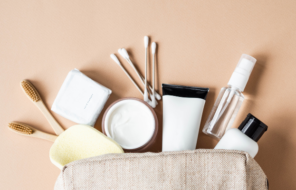Are sunburns bad? Obviously, the physical aspects of sunburns are unpleasant, like redness, peeling, or even blisters. Oh, and did we mention the pain? A bad sunburn can be extremely uncomfortable, itchy, and painful, often making it difficult to fall asleep or wear specific articles of clothing. It’s best to avoid sunburns altogether by properly protecting yourself from the sun and its effects, as sunburns can pose a health risk beyond the temporary discomfort.
If you’re often tempted to skip out on daily sunscreen or hope your burn will transform into a tan, heed caution from experts. We talked with two medical professionals to understand the effects of sun damage and how to protect yourself from its rays — and the slight redness you see is only the beginning.
What causes sunburn?
Sunburn occurs from exposure to the sun’s ultraviolet (UV) rays. The sun has two main types of UV rays: longwave ultraviolet A (UVA) and shortwave ultraviolet B (UVB). UVB rays have a slightly shorter wavelength than UVA rays, so they do most of their damage to the skin’s surface layers. This radiation is independent of the heat emitted by the sun. UVA and UVB rays can be present even on winter days, so sun protection is essential regardless of the season or weather.
What are the risks of sunburn and sun exposure?
According to Dr. Sejal Shah, board-certified dermatologist and founder of SmarterSkin Dermatology, the two most common types of sunburn are first-degree and second-degree burns. “A first-degree burn damages the outer layer of the skin and is characterized by redness, dryness, and pain, and second-degree burns feature the same symptoms, along with blisters,” Dr. Shah said.
Third-degree and fourth-degree burns are comparatively rare but can cause severe damage and scarring, and may even require hospitalization. Aside from these temporary side effects, sunburns can also come with harsh short-term risks like dehydration, weakness, and hyperpigmentation. Acute long-term risks associated with sunburns are skin cancer, premature aging, and skin lesions.
Skin Cancer
Sun exposure is the leading cause of skin cancer, accounting for 80%-90% of cases. The radiation from both the sun’s UVA and UVB rays damages the skin cells and impacts their DNA. This damage can lead to mutations that eventually become cancerous — and life-threatening if it’s not caught early.
“Skin cancer is the most significant long-term repercussion of sun exposure,” Dr. Nadir Qazi, cosmetic dermatology surgeon and owner of Qazi Cosmetic Clinic said. “It can sneak up on you with no warning and may not even be in a spot [on the body] that has contact with the sun.”
But do sunburns actually cause skin cancer? The answer seems to be yes. Research shows that repeated sunburns put you at a greater risk for skin cancer, and it’s particularly true if you experienced severe sunburns as a child.
Dehydration And Weakness
One short-term (but still serious) effect of sunburn is dehydration. “A sunburn draws fluid to the skin’s surface and away from the rest of the body,” Dr. Shah explained. That, in turn, can cause weakness, headaches, fever, and fainting. If you’re experiencing any of these symptoms, you may need to go to the hospital for treatment.

Premature Aging And Hyperpigmentation
Ever noticed extra freckles, a dark spot, or a new wrinkle after a day spent in the sun?
According to Dr. Quazi, “Sun damage from ultraviolet radiation presents itself in so many ways, the most obvious being premature aging by photoaging. Free radicals from UV rays damage your skin cells and break your elastin protein bonds.”
When those protein bonds break, the skin loses its natural elasticity, which results in fine lines and wrinkles. The damage from the sun’s rays can also lead to hyperpigmentation or sunspots, especially for those with darker skin tones.
Skin Lesions
Cumulative sun exposure can lead to skin lesions known as actinic keratosis or solar keratosis. Skin lesions present themselves as thickened, scaly skin. Even worse, these lesions can sometimes lead to skin cancer.
How to prevent sunburns?
The good news is that both sunburns and sun damage are preventable. Follow these tips to protect yourself from the sun:
- Check the UV index. Before making outdoor plans, check the UV index to understand how intense the sun’s radiation will be so that you can prepare accordingly. If the UV index is three or above, wear sunscreen. If it’s over 8, it’s better to avoid going outside.
- Use a broad-spectrum sunscreen. A broad-spectrum sunscreen will protect you from both UVA and UVB rays. Dr. Shah and Dr. Qazi recommend choosing a sunscreen with at least 30 SPF to ensure sufficient protection.
- Wear UPF clothing. Dr. Qazi suggested wearing sun protective clothing and hats for additional preventive measures from sun damage. Most athletic and outdoor brands have an Ultraviolet Protection Factor (UPF) rating, a system similar to sunscreen SPF ratings.
How do you treat a sunburn?
If you do get a sunburn, correctly treating it can reduce your chances of complications. Here are suggestions for how to treat your burn properly:
- Take a cold shower. A cool shower will alleviate some of the heat in the short term. It’ll also wash away any salt or chlorine on your body that can increase irritation.
- Drink water. Water is essential for preventing sunburn-induced dehydration, so stay hydrated.
- Moisturize. While your skin is still damp, apply moisturizer to it to soothe it. Soothing ingredients include aloe vera, ceramides, chamomile, or niacinamide.
- Apply hydrocortisone. Using hydrocortisone cream can reduce the inflammation if your sunburn isn’t severe enough to merit a hospital visit but still won’t calm down with gentle treatment.
- Painkillers. Oral anti-inflammatories like ibuprofen or aspirin are safe for reducing sunburn pain. Avoid topical anesthetics like benzocaine because they can irritate the skin even more.
- Go to the doctor. When in doubt, seek medical attention. If your sunburn is severe, blistering, or you notice any suspicious marks on your skin, visit your doctor as soon as possible.
Sunburns Are Serious – So Take Them Seriously!
Sunburns can severely damage skin and have short-term and long-term health repercussions. In the best-case scenario, sun exposure will temporarily impact your skin and physical appearance, but at worst, it can be life-threatening. Protect yourself and your loved ones by applying sunscreen daily, and if the UV rays are too high, stay indoors.





